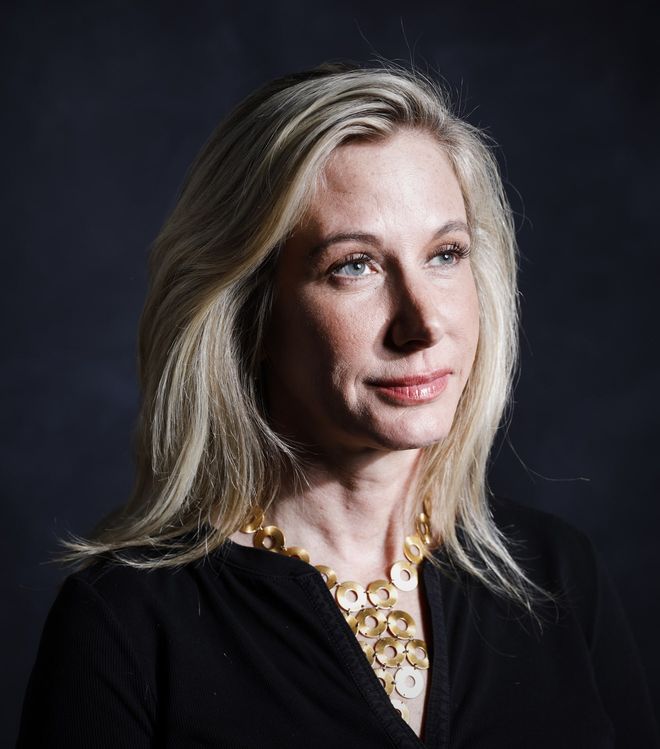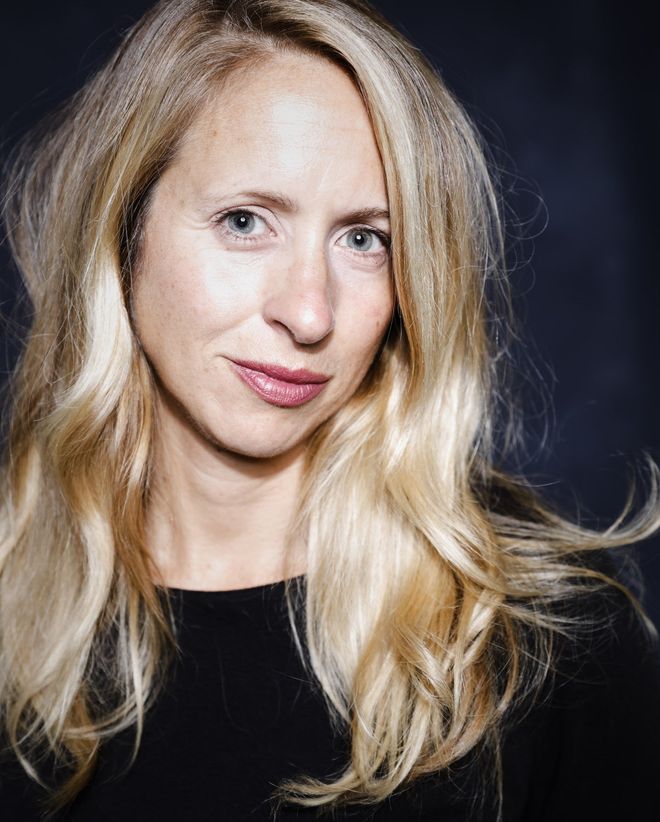Inside the corporate exodus to cannabis country

Two and a half years ago, Mill Valley resident Carrie Tice told her longtime boss — the president of the international video game company Ubisoft — “I’m gonna quit my job and start a cannabis company.”
He urged her to take a leave of absence. Instead, 48-year-old Tice traded in her title as a senior director of Ubisoft sales and partnerships to become the co-founding director of San Francisco cannabis company Octavia Wellness, which provides cannabis wellness consulting for seniors.
“Is it scary, and do you wonder if (cannabis legalization is) going to be overturned? Yeah — it is, and you do,” she said.
Marijuana remains a federally illegal “schedule 1” drug deemed as dangerous as heroin. Yet legal cannabis in eight states and medical legalization in 29 states generates $7.2 billion in annual revenue, and is projected to create 282,422 jobs by 2020, according to a Washington, D.C.-based, politically neutral research firm New Frontier Data, which aggregates and refines public and private market research. As social stigma falls and profits rise, legal pot is tempting some of the most risk-averse employees in America — well-employed corporate executives who are safely on a career track.
Top talent at PepsiCo, Apple, Salesforce, Starbucks and American Express is taking huge career risks not only to chase a major pot payday, but also because of the plant’s potential health and social benefits, executives say. Those making the move say the pot trade can also offer the potential for a better work-life balance; for women, it may offer a chance to shatter the glass ceiling.
Tice put aside her boss and others’ words of caution, and made the leap based on personal experience she said. She had smoked cannabis instead of using opiates for pain following a radical hysterectomy. Later, she had witnessed her mother’s success with cannabidiol-rich pot gummies that did not get her mom high, but seemed to help lift the fog of her dementia.
“When you know how people are benefiting from this, you kind of feel a responsibility to scream it from the mountaintops,” she said.
Still, Tice, a mother of a now-12-year-old son, faced stigmas both internal and external. Some out-of-state relatives disapprove. She worried her son would get in trouble at school if he told people, ‘We give my grandma weed.’ She talked to him a lot about how to approach the topic.
“It was really funny, because he did. He ended up telling the whole class about it, and then I got people calling and saying, ‘Oh my gosh, my mom needs this — this is the coolest thing,’ or ‘I hurt my back. Can you help me?’” Tice said.
Today, Octavia Wellness has 30 active wellness consultants providing in-home sales and delivery to senior care facilities and elsewhere, backed by $1.2 million in investor funding.
Tice’s unorthodox decision to quit her tech job for cannabis is in line with a larger trend.
Los Angeles’ Cindy Capobianco, 49, and her husband, Robert Rosenheck, 50, have a high-end marijuana edibles and skin care company called Lord Jones that has gained notoriety for its collaborations with movie stars and the band Sigur Rós, and began as a collective in 2014.
Capobianco comes from the fashion world, with a resume that includes stints as Vogue’s fashion editor, the launch of Marie Claire U.S., and director of PR for Donna Karan and Banana Republic. Rosenheck is a product developer and brand specialist who has consulted for the likes of General Mills, Sony Music, Paramount Pictures and Planned Parenthood.
Rosenheck said the duo are “constantly surveying the political landscape” as all cannabis businesses, even in legal states, risk sudden government crackdowns or potential federal prison time for violating the U.S. Controlled Substances Act. But they are driven by the unmatched impact of the plant.
“We’ve both been cannabis enthusiasts for a long time,” Capobianco said. “One thing I understood very deeply from the first time I experienced cannabis is it’s an incredibly powerful plant.”
Medical marijuana has been legal in California for 21 years, with full commercial legalization set to begin in 2018. Once an industry of outlaws, legacy pot businesses have begun reaching far outside the core industry to fill high-level positions, said Emily Paxhia, 37, co-founder of the San Francisco cannabis investing company Poseidon Asset Management. Paxhia and her brother Morgan host executive-level job fairs in the Bay Area to help fill upper-management jobs in cannabis.
“One of the best ways to mitigate risk is to make sure the best teams possible are in these companies,” she said.
But it’s still challenging to “find people who have the range of experience and traits this industry requires,” said Danielle Schumacher, founding partner of THC Staffing Group, which places top managers and other specialists into full-time salary positions. Many folks also worry that dabbling in cannabis will mar their resumes.
“There is still a stigma for listing cannabis experience on LinkedIn, for instance, and awareness that jobs in this industry are not as stable as others,” she said.
Just ask James Slatic. In 2010, Slatic jumped from being an executive vice president of a large spice and seasoning company, High Quality Organics, to operating the cannabis company MedWest. This year, Slatic faces felony hash manufacturing charges in San Diego County. Law enforcement seized nearly half a million dollars in MedWest assets. County prosecutors are also charging Slatic’s attorney, Jessica McElfresh, with deceiving investigators.
A more safe bet might be corporate legal work. San Francisco lawyers Shabnam Malek and Amanda Conley left behind top associate positions at a boutique law firm to open San Francisco’s Brand and Branch in 2014, where they focus on intellectual property law and found an unmatched chance to boost their legal careers.
More than 90 percent of their clients come from cannabis, which can be tricky because lawyers and others in cannabis often have to be willing to be paid in cash. Most banks still refuse to take marijuana-industry deposits.
“Cannabis is still federally unlawful, so by any calculation you must adopt some risk if you’re going to work in this industry,” Malek said.
But the fast-growing cannabis space is hungry for qualified legal counsel, and welcomed the driven attorneys, 44 and 35 years old, with open arms — something lawyers aren’t too accustomed to, Conley joked.
Even the most profitable company in the world can’t hold a candle to weed, for some. Mark Williams — co-founder of San Francisco company Firefly Vapor — worked for Apple on Mac OSX software for five years. Now he works on a popular vaporizer that gently heats marijuana to unlock its therapeutic molecules instead of burning it.
He said he and his co-founder, Sasha Robinson, saw the opportunity to combine design, hardware, software and electrical engineering skill he once lent to Apple to create a user-friendly product. Williams thinks vaping technology also bolsters the legalization movement, because it’s an alternative to smoking.
He said he and Robinson are doing what they’re doing out of love for the work and the plant, and there is no other job he would “rather be doing right now.”
April M. Short is an Oregon freelance journalist and an editor at AlterNet.org.
Hot pot hires
Key executive positions that need filling in legal cannabis, according to THC Staffing’s Danielle Schumacher and Emily Paxhia of Poseidon Asset Management.
- Chief Financial Officer
- Vice President of Sales
- Dispensary operations manager
- Compliance director
- Testing lab manager
- Master cultivator/site manager
- Sales and marketing manager
- Engineer
- Lawyer
— April M. Short

